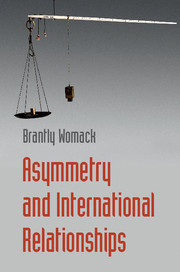Book contents
6 - Multinodality and the Status ad Quem
from PART III - WORLD SYSTEMS
Published online by Cambridge University Press: 05 December 2015
Summary
Every age wonders at itself and its prospects. And the landscape does change even while humanity trudges on, disappointing the optimists and frustrating the pessimists. The changes in terrain do not determine the choice of paths, but they do affect the feasibility and consequences of choices. While Chapter 5 dealt with the structure of hitherto existing world systems, the task in Chapter 6 is to explore the effects of changing global conditions on prospects for the intermediate future. The tasks of this chapter are to consider factors that are shaping the new landscape of international politics, to describe the possible features of a multinodal world order, and to consider the prerequisites of sustainability beyond hegemonic cycles.
The previous chapter argued that the management of asymmetric relationships was the key to the sustainability of a hegemonic power or of a hegemonic system. The hegemonic aging process is driven by the resistance of its extremities and the weakness of their compliance, aided by the flaccidity of great power complacency. A status-quo power builds its own revisionist challenge if it demonstrates, by domination, the alienation of its interests from those of everyone else. A multipolar situation is shaped not only by the ups and downs of the balance of great powers but also by the management of domestic politics and of smaller allies. The difference between rule and misrule has practical consequences for differences in strength, resilience, and longevity.
In this chapter, I will argue that the societal underpinnings of the current era, which I date from 2008, are bringing asymmetric relationships to the center stage of world politics. On the positive side, there has been a vast expansion of horizons, alternatives, and interrelationships. The global societal texture has become so complex that isolation is virtually impossible and domination increasingly self-limiting. It is a post-hegemonic era. On the negative side, while the exposure of all to all is not a war of all against all, it does mean that interests and even identity are at risk to outside forces. In a situation of manifold interwoven contingencies, to say that the world is beyond control is not comforting. The problem of coping with uncertainties, described in Chapter 3 as inherent in the simplest of triangles, is now metastasized into a global problem.
- Type
- Chapter
- Information
- Asymmetry and International Relationships , pp. 174 - 200Publisher: Cambridge University PressPrint publication year: 2015
- 1
- Cited by



